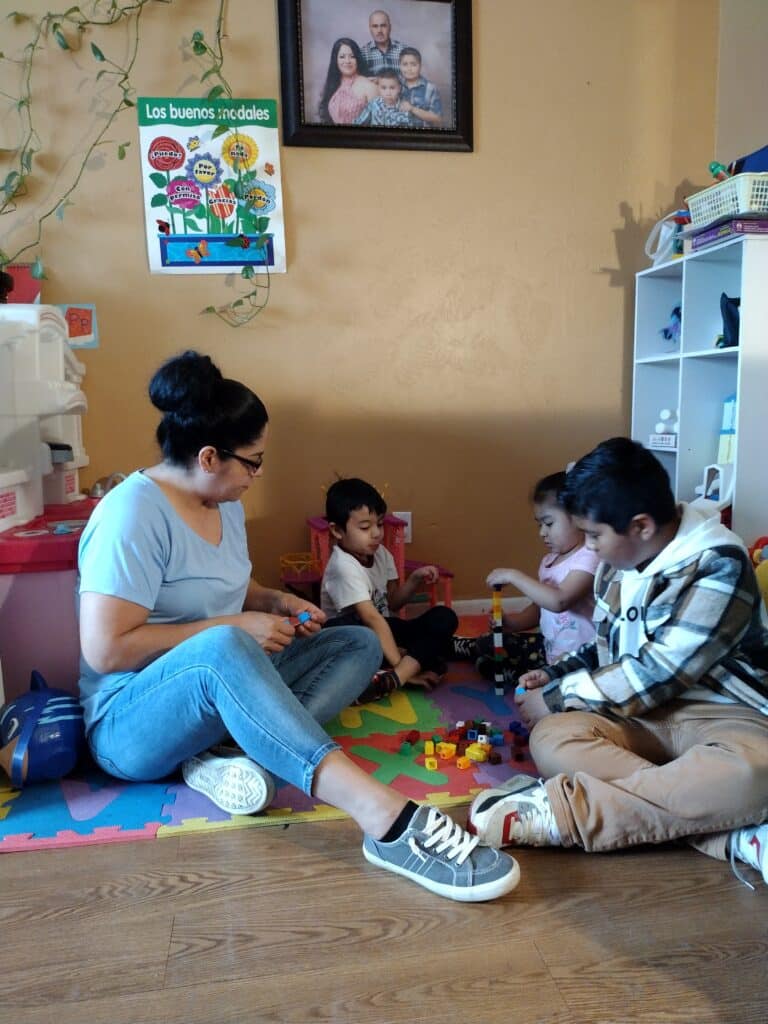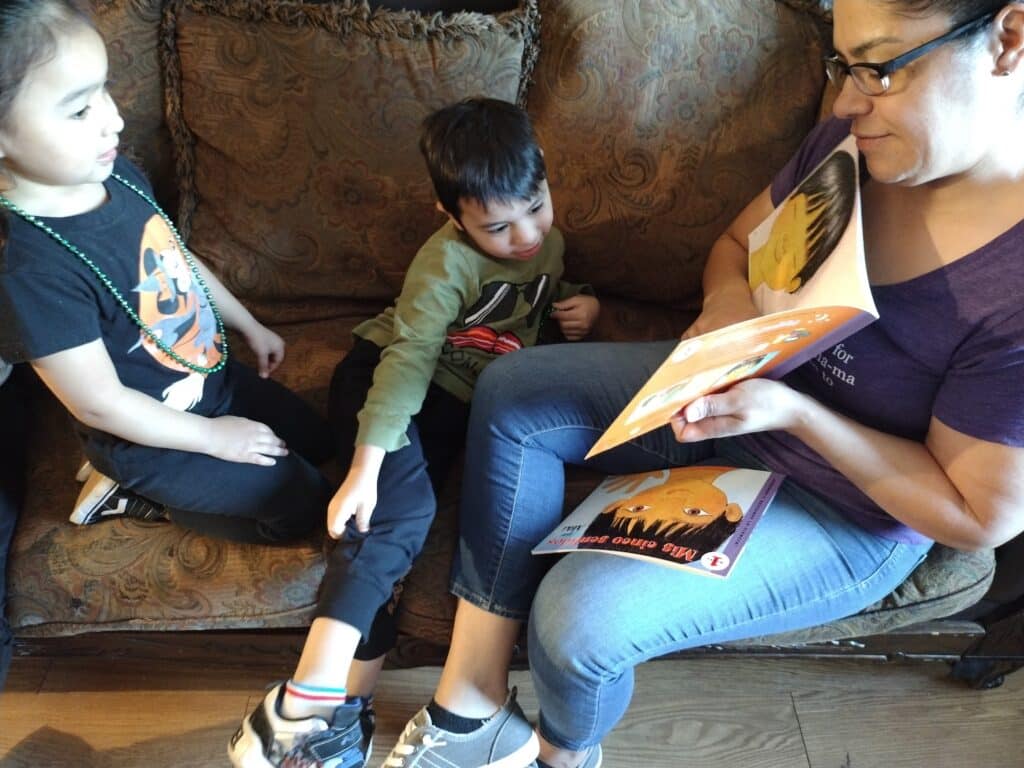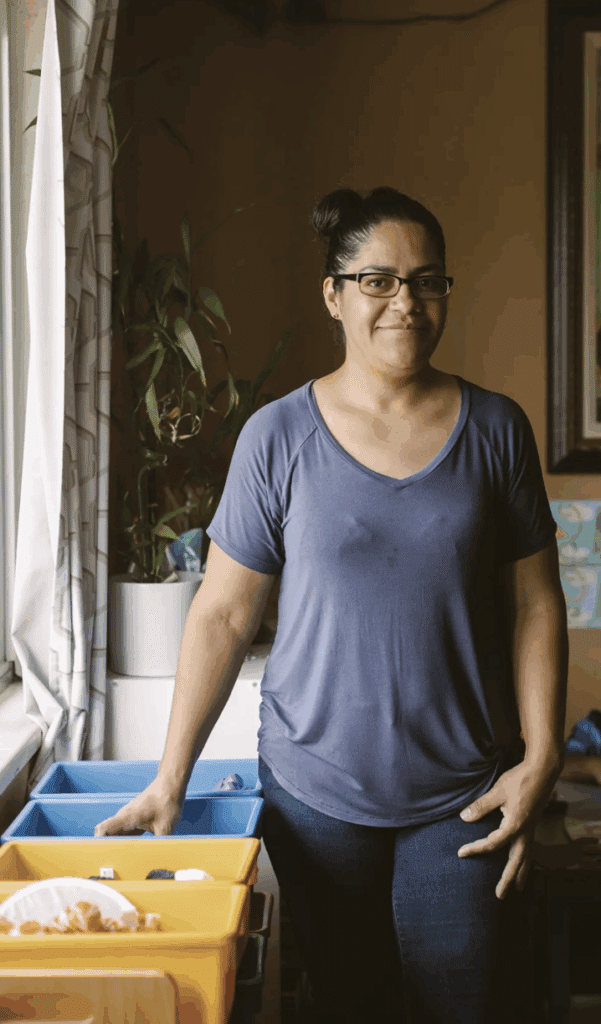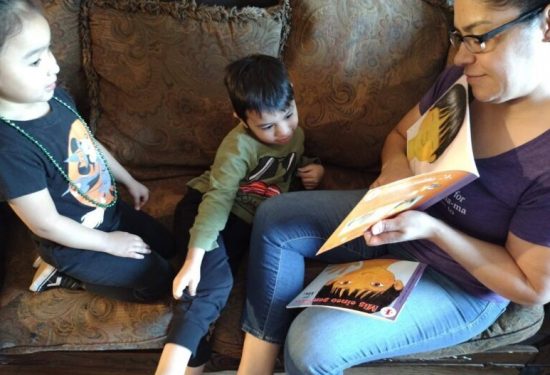I have been a child care provider for 21 years. I like to explain that caring for children in my home is my profession—even though in my culture, and perhaps in many others, it is not always recognized as “real” work.
My name is Carmela Enriquez Meraz and I live in Colorado. During this Hispanic Heritage Month, I like to remember a couple of Spanish sayings that ring very true: “Where three can eat, four can eat” and “If we add more water to the beans, there will be enough for everyone.” These sayings reflect how willing we are to share our food with the children we care for. We see it as normal, because in the end, we see them as part of our own families.
An Essential Job
Not long ago, I was remembering some of the first focus groups I was invited to, where I shared about my work as an FFN (family, friend and neighbor) child care provider. I was surprised to hear myself reflect on my own answers. It took me some time to realize the incredible work happening in so many immigrant households. Even though the income is small, we don’t think twice about sharing homemade meals—fresh, not frozen—recipes passed down from generation to generation.
I don’t think I would have realized all that we do if not for my participation in Leading From Home, a Home Grown project where I had the opportunity to work with a mentor who helped me see my work from a new perspective.
Now I know that this is essential work that keeps the economies of our communities and cities moving. We offer care during hours that most child care centers don’t: sometimes starting at 4 a.m. and ending at 7 p.m. or later, often including weekends. We care for the children of people who make it possible for food to reach tables across the country—farmworkers and packers in fruit, vegetable, and meat plants. I also know providers who care for the children of doctors, nurses, teachers, and many other professions.

We nurture and educate with love and dedication, even though sometimes it is difficult to make ends meet and keep up with bills. I often remember the days of the COVID pandemic. For me, and for many other providers, quarantine was impossible. How could we tell families that we could not care for the most precious part of their lives—their children—because of the risk of infection?
It was a hard time, but it also became a time of mutual support. While many people stopped working or worked remotely, for those who could not, we kept opening our doors every day, doing our best to make sure the children stayed healthy and happy.
During that period, many of us received free or low-cost training to strengthen our skills. Many of us are more than prepared to be licensed—we have hours of training in early childhood education, medication administration classes, and up-to-date first aid certifications. But there are still regulations and requirements that we cannot meet.
Be Proud
While I believe our situation will improve—I am sure of it—I want to tell you, if you are a child care provider, say it with your head held high and with pride: I am a child care provider! Whether licensed or not, in a center, in Head Start, or in your own home, your work is essential. Because in our hands we hold the most important treasure: our children, the future of tomorrow’s society.
Despite the fear and uncertainty that sometimes exist in our communities because of the political climate, I feel immense pride in the work we do every single day. That is why, during this Hispanic Heritage Month, I want to remind everyone that we leave a mark of love on the families we serve—whether they are Hispanic or not.
Are you a child care provider? I congratulate you. You are doing an amazing job. If you are not, I am sure you know someone who cares for their grandchildren, relatives’ children, or even their neighbors’ kids. Please, take a moment to thank them.




